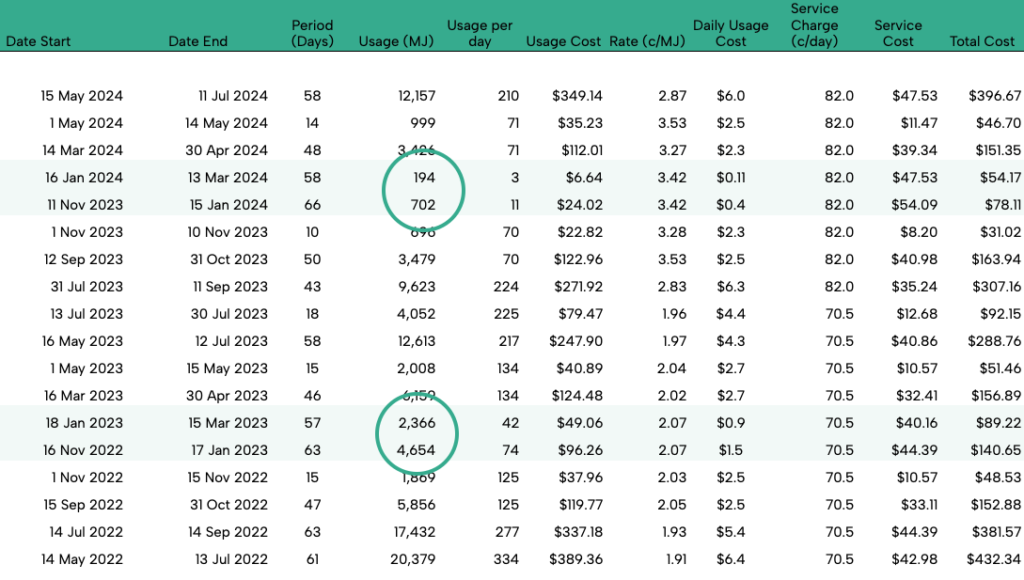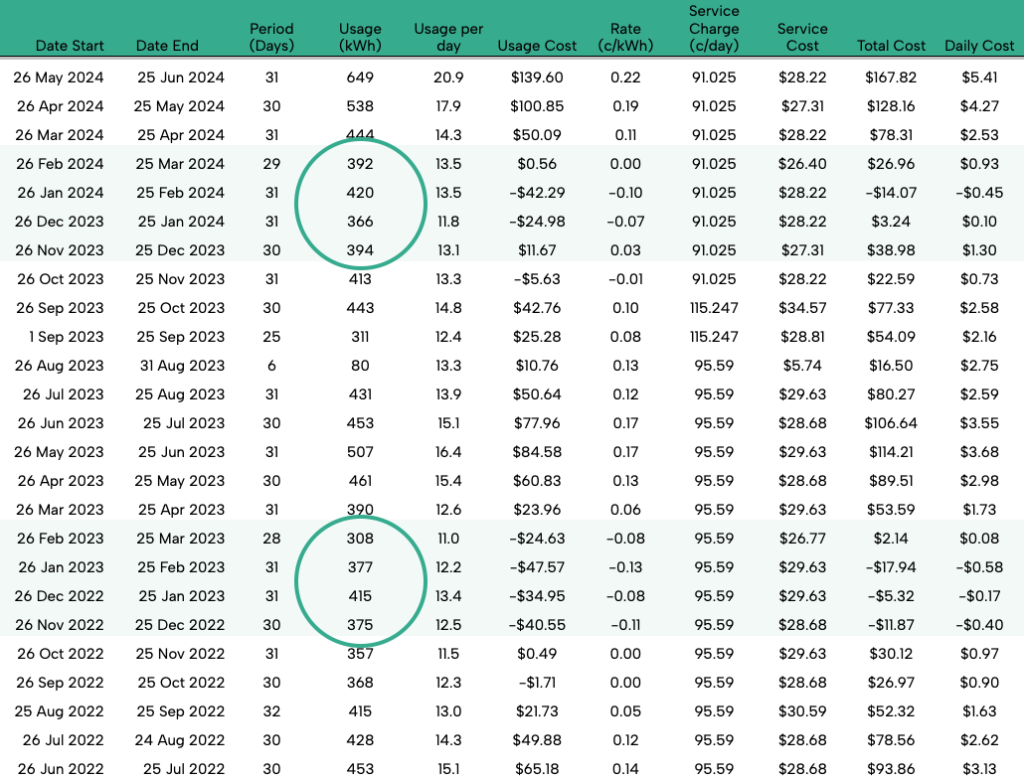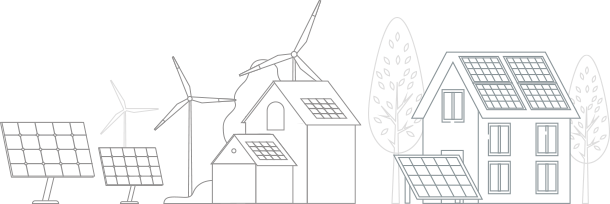Vijay is on track to save $540 per year with his heat pump hot water unit.
Powrhouse helped Vijay install an Aquatech 270L Dynamic X8 in November 2023.
Almost a year later, I asked Vijay to send me his energy bills for the past two years, so I could crunch some numbers.
I was thrilled with the result, and so was Vijay!
The remarkable outcome from this case study is that Vijay only has 2 people in the home. People with 3, 4, 5 or even more in the home stand to save even more by switching to heat pump hot water.
Gas Bills Down 👇
The easiest way to analyse the change due to the heat pump hot water unit is by looking at Vijay’s summer bills. We can safely assume that Vijay’s not going to use his gas heater in Summer (although it is Melbourne!). We assume that his usage due to cooking will be similar.
Vijay’s 2023 gas bills will include usage attributable to his previous gas storage hot water unit. Having ripped this out in November 2023, his 2024 summer bills now have no gas hot water usage, so we should expect to see a decrease in his gas bills. Because we are analysing in summer, we can assume that the usage is solely due to his heat pump hot water unit.
Vijay’s gas bill cycle is from mid November to mid March, a period of around 120 days.
Vijay’s gas bills for summer 2023 totalled 7,020 megajoules (MJ). Vijay’s gas bills for summer 2024 totalled 896 MJ.
This equates to a difference of 6,124 MJ over 120 days (or 34% of the year).
We then need to annualise the savings, so we divide by 34%, which means Vijay’s annual savings are estimated at 18,026 MJ.
What does this mean in dollars? Well we took the average of Vijay’s gas bills over the past 12 months: 3.1c per MJ.
This equates to gas bill savings of $563.07.

I find analysing energy bills like this fascinating. Take a look at Vijay’s 16 Jan 2024 to 13 March 2024 gas bill – $6.64! How amazing is that?! Please note we prefer to analyse usage over a period rather than cost, because the price of gas changes over time.
Electricity Bills Up? 👆
The decrease in gas bills is not surprising. We’ve replaced a gas appliance with an electric appliance, so of course Vijay’s gas bills were going to decrease.
The key is to now analyse the impact on Vijay’s electricity bills. Have they increased and if so, by how much?
Vijay’s electricity bills don’t match up perfectly with his gas bills. His electricity bills are monthly from 26 November to 25 March. We took 4 bills, a period of 121 days.
Vijay’s usage over Summer ’24 was 1,572 kWh. Vijay’s usage over Summer ’23 was 1,475 kWh, an increase of 97 kWh.
We need to annualise this with the result being an extra 293 kWh being used per year, which we attribute to the heat pump hot water unit.
We took an average electricity rate of 7 cents per kWh, which works out as $21.74 extra per year.
It’s important to note here that Vijay has solar and we set up a timer for the unit to run during the day, so most of his heat pump hot water would have been powered by the solar generated on his rooftop (although he has an old solar system which is only around 2kW in size).

Double Check
We double checked Vijay’s energy bill changes by analysing his yearly rolling usage.

Vijay’s yearly gas usage decreased by 17,629 MJ, which is consistent with the estimate from only his summer gas usage (18,026MJ). At his average annual gas rate, this represents $550 in savings. Vijay’s yearly electricity bills a went up only 27 kWh, an increase of $2.01.
Summary
Looking at both Vijay’s energy usage through summer only and on a yearly view, confirms that Vijay is making considerable savings of around $540 per year with his heat pump hot water unit.
Vijay has solar, so customers without solar may not save as much. However, Vijay’s savings represent a 2 person household, so households with more people will likely save more.
Both I and Vijay are thrilled with this result. I had estimated that Vijay would be saving around $300-$350 per year, but I’m delighted to see the savings are even greater.
As gas prices continue to rise, the continued savings from heat pump hot water will only increase.


 Subscribe to Our
Subscribe to Our